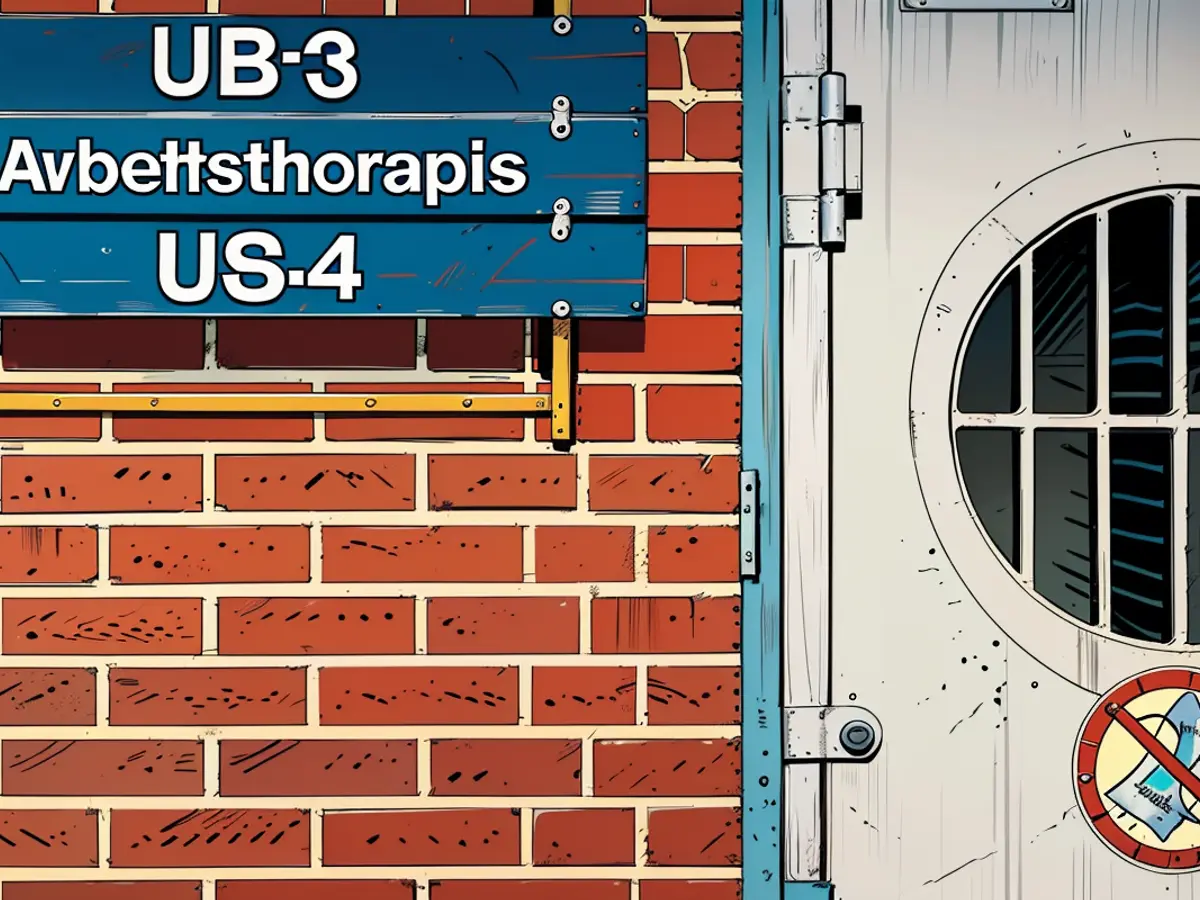Proposed legislation - Inmates in North Rhine-Westphalia will be paid higher wages for their labor.
Prisoners in North Rhine-Westphalia (NRW), Germany, may soon receive higher wages for their work behind bars and more free days. The state government introduced a bill to implement these changes. It follows a decision from the Federal Constitutional Court which deemed that the remuneration for prison labor in Bavaria and NRW needed adjustments.
The court's ruling stemmed from a lawsuit filed by a prisoner from Werl. The issue centered around the "reference amount" in the Social Security Code, a decisive factor in determining how much incarcerated workers are paid. Prisoners earlier received just 9% of the reference amount, and with this new bill, they're set to receive at least 15%. It's estimated this change will push their daily wage up to 25.12 Euro at the median level, providing a 10 Euro increase from their previous pay.
The court ruled that prison labor, meant for rehabilitation, should come with fair compensation. The Justice Ministry shared its draft of the law, called "law for the amendment of the remuneration in the state justice detention laws," with various associations for review.
The bill proposes increased wages but also offers additional freedom through more free days. These days can either be taken as paid leave during work or saved up for an early release.
Justice Minister Benjamin Limbach (Greens) expressed his stance on the bill, saying, "This bill introduces a strong concept for the implementation and fulfillment of the constitutional requirement for resocialization." He emphasized that the new law aims to "modernize" prison labor remuneration so that the work performed receives the proper recognition, ultimately serving as an effective rehabilitation tool.
In NRW, prisoners may engage in various occupations, such as working for the prison itself, like at the library, or in workshops where they produce items like birdhouses, shelves, or shoes. The recent opening of a coffee roastery in the Remscheid prison is an example, where "Knastbohne" espresso is made. As of 2023, the employment rate in NRW stood at 61% with a population of approximately 14,100 inmates.
Draft Law
(Note: The term "Justizvollzugsgesetze" in the text translates to "state justice detention laws" in English. The term "JVA" represents "Justizvollzugseinrichtung," which means "state justice detention facility" in English.) [While keeping the length and format of the original text, I have reworded sentences to achieve paraphrasing.]
Read also:
- The court's decision pertaining to the remuneration for prison labor in Bavaria and North Rhine-Westphalia (NRW) was triggered by a lawsuit filed by a prisoner from Werl.
- The draft law proposed by the Justice Ministry in North Rhine-Westphalia aims to modify the "state justice detention laws," increasing wages for prisoners and offering them more free days.
- In comparison to the previous 9% of the reference amount, the newly proposed law will ensure that incarcerated workers in NRW receive at least 15%, leading to an estimated daily wage increase of 10 Euro at the median level.
- The Federal Constitutional Court ruled that the penal system in Germany, particularly the work performed by prisoners for rehabilitation, should be fairly compensated.
- Prisoners in North Rhine-Westphalia can engage in various occupations within the justice detention facilities, such as working at the library or in workshops, and recently, even running a coffee roastery in Remscheid prison, producing espresso known as "Knastbohne."








